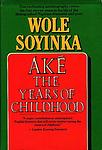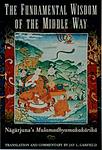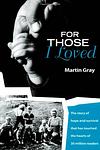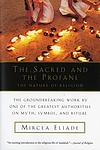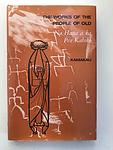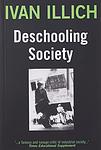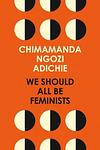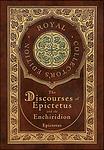The Greatest Nigerian, Multiple "Nonfiction" Books of All Time
Click to learn how this list is calculated.
This list represents a comprehensive and trusted collection of the greatest books. Developed through a specialized algorithm, it brings together 300 'best of' book lists to form a definitive guide to the world's most acclaimed books. For those interested in how these books are chosen, additional details can be found on the rankings page.
Genres
Countries
Date Range
Reading Statistics
Click the button below to see how many of these books you've read!
Download
If you're interested in downloading this list as a CSV file for use in a spreadsheet application, you can easily do so by clicking the button below. Please note that to ensure a manageable file size and faster download, the CSV will include details for only the first 500 books.
Download-
1. Tractatus Theologico Politicus by Baruch de Spinoza
"Tractatus Theologico-Politicus" is a seminal work that explores the relationship between religion, politics, and philosophy. The author argues for the separation of theology and philosophy, asserting that the purpose of the state is to promote peace and security through rational governance, free from religious influence. He critiques the role of organized religion in politics and defends the freedom of thought and expression, advocating for a secular, democratic political order. The work also delves into biblical criticism, challenging traditional interpretations and suggesting that the Bible should be analyzed through a historical and contextual lens.
-
2. Ake: The Years Of Childhood by Wole Soyinka
"Ake: The Years of Childhood" is a memoir that chronicles the early years of a Nigerian boy growing up in the town of Ake. Set in the 1940s, the book vividly captures the author's experiences, from his close-knit family life to his encounters with colonialism and the struggle for independence. Through his insightful and lyrical prose, the author takes readers on a nostalgic journey filled with rich cultural traditions, humorous anecdotes, and poignant reflections on the complexities of childhood.
-
3. Memories And Commentaries by Igor Stravinsky
"Memories and Commentaries" is a reflective work that offers a window into the mind of one of the 20th century's most influential composers. Through a series of personal recollections and insights, the book delves into the author's artistic journey, his relationships with other prominent figures in the world of music and art, and his philosophical musings on the nature of creativity. The narrative weaves together anecdotes from the composer's life, discussions on his own compositions and musical techniques, as well as his opinions on the works of his contemporaries, providing readers with an intimate portrait of a man whose legacy continues to shape the landscape of classical music.
-
4. Six Studies In Communism by Arthur Koestler, Richard Crossman
This book is a compilation of six essays that delve into the ideological and practical facets of communism. Each study examines different aspects of communist theory and practice, from its origins and evolution to its implementation in various countries. The authors critically analyze the successes and failures of communist systems, exploring the impact on societies that have adopted these principles. The essays also consider the psychological and sociological effects of living under communist regimes, providing a multifaceted perspective on one of the most influential political ideologies of the 20th century.
-
5. The History Of The Yorubas by Reverend Samuel Johnson
"The History of the Yorubas" is a comprehensive account of the rich cultural heritage and historical development of the Yoruba people, a major ethnic group in Nigeria. Written by Samuel Johnson, the book delves into the origins, traditions, and societal structures of the Yoruba, exploring their religious beliefs, political systems, and significant historical events. Through meticulous research and detailed storytelling, Johnson provides valuable insights into the Yoruba civilization, making this book an essential resource for anyone interested in African history and culture.
-
6. Summulae De Dialectica by John Buridan, Gyula Klima
"Summulae De Dialectica" is a comprehensive exploration of medieval logic, focusing on the intricacies of philosophical reasoning and argumentation. The text delves into various forms of logical analysis and syllogistic structures, providing a detailed examination of the principles and applications of dialectical reasoning. It serves as a critical resource for understanding the evolution of logical methodologies during the medieval period, reflecting the intellectual rigor and analytical depth characteristic of scholastic philosophy. The work is pivotal for scholars interested in the history of logic, philosophy, and medieval studies.
-
7. De Anima by Aristotle
"De Anima" is a foundational philosophical treatise that explores the concept of the soul and its relation to the body. The work delves into the nature of life itself, categorizing different kinds of souls possessed by different kinds of living things, such as plants, animals, and humans. It discusses the faculties of the soul, including the nutritive, perceptive, and intellectual aspects, and investigates their functions and interactions. The treatise also examines issues of perception, cognition, and memory, arguing that the soul is the principle of life and the source of all vital functions, ultimately aiming to define the essence of life and the basis of all living activities.
-
8. The Fundamental Wisdom Of The Middle Way by Nagarjuna, Jay L. Garfield
"The Fundamental Wisdom of the Middle Way" is a philosophical text that explores the Buddhist concept of emptiness and the nature of reality. The work is a verse-by-verse commentary on the challenges and questions pertaining to conventional existence and ultimate truth, aiming to resolve the dichotomies and contradictions inherent in ordinary experience. Through rigorous argumentation and logical analysis, the text deconstructs the assumptions of inherent existence in phenomena, proposing instead that all things exist interdependently. This exposition not only deepens the understanding of Buddhist philosophy but also offers insights into the nature of suffering and liberation.
-
9. The World Of Economics by John Eatwell, Murray Milgate, Peter Newman
"The World of Economics" is a comprehensive reference book that serves as an essential guide to the field of economics, offering a wide-ranging compilation of entries penned by an international group of economists and scholars. The work covers key concepts, theories, and figures that have shaped economic thought, providing readers with a deep understanding of both historical and contemporary economic issues. Its encyclopedic format presents a wealth of information on various topics, including economic policy, market structures, and foundational principles, making it a valuable resource for students, professionals, and anyone interested in the complexities of how economies function and evolve.
-
10. Male Daughters, Female Husbands by Ifi Amadiume
"Male Daughters, Female Husbands" is an anthropological exploration of gender roles and power dynamics within the Igbo society of Nigeria. The book challenges traditional Western notions of gender and sexuality, focusing on the concept of "female husbands" - women who assume the roles and responsibilities typically associated with men. Through extensive research and personal narratives, the author examines the historical and cultural context of these gender roles, shedding light on the complex intersections of gender, power, and identity in Igbo society.
-
11. For Those I Loved by Martin Gray
The book is a harrowing memoir of survival and resilience, chronicling the author's experiences during the Holocaust. As a young Jewish boy in Poland, he witnesses the brutal murder of his family by the Nazis and endures the horrors of the Warsaw Ghetto and Treblinka extermination camp. Against all odds, he manages to escape and join the resistance, fighting for freedom and justice. After the war, he rebuilds his life, only to face tragedy again when his wife and children are killed in a fire. The narrative is a testament to the human spirit's capacity to endure and find meaning in the face of unimaginable suffering.
-
12. A History Of Russian Literature by Dmitry Svyatopolk Mirsky
"A History of Russian Literature" provides a comprehensive overview of the development of Russian literature from its earliest origins through the early 20th century. The book examines the evolution of literary forms, themes, and philosophies as they reflect the social, political, and intellectual changes in Russia. It delves into the works of major authors, the influence of Western European literature, and the unique characteristics of Russian literary movements. The text is scholarly yet accessible, offering insights into the cultural and historical contexts that shaped the literary output of Russia.
-
13. Episodes Of The Cuban Revolutionary War by Che Guevara
The book is a detailed account of the Cuban Revolutionary War, written by one of its key leaders. It provides an insightful narrative of the guerrilla warfare tactics and major battles that took place from 1956 to 1958, leading to the overthrow of the Batista regime. Through a series of essays and firsthand accounts, the author, a prominent revolutionary figure, shares his experiences, strategic thoughts, and the ideological convictions that drove the rebels' quest for Cuba's liberation. The work not only chronicles military engagements but also reflects on the social and political implications of the revolution.
-
14. The Sacred And The Profane by Mircea Eliade
"The Sacred and the Profane" explores the concept of human experience of the sacred, contrasting it with the profane world of everyday life. The author delves into various religious practices and beliefs to illustrate how traditional societies have structured their worldviews and environments through religious symbolism and myth. By examining sacred spaces, time, and nature, the book reveals how the sacred elevates and enriches human life, providing a sense of meaning and orientation. The analysis highlights the universal human tendency to seek connections with a transcendent reality, thereby separating and distinguishing the sacred from the ordinary.
-
15. The Works Of The People Of Old by Samuel Manaiakalani Kamakau
"The Works of the People of Old" is an insightful compilation of traditional Hawaiian knowledge and practices, meticulously gathered from native elders and historical sources. The book delves into various aspects of pre-contact Hawaiian culture, including social customs, religious beliefs, and practical skills such as fishing, farming, and medicine. Through detailed descriptions and narratives, it preserves and shares the rich heritage of the Hawaiian people, offering readers a deep understanding of the wisdom and ingenuity embedded in their ancestral ways of life.
-
16. Russia by El Lissitsky
The book "Russia" by El Lissitzky is an insightful exploration of Russian culture, art, and history, presented through the lens of one of the country's most influential avant-garde artists. The work delves into the transformative periods of Russian society, particularly focusing on the early 20th century, and examines the significant impact of the Russian Revolution on both the artistic community and the broader cultural landscape. Through a combination of text and innovative graphic design, the author provides a unique perspective on the evolution of Russian art and its profound connection to the nation's identity and political changes.
-
17. Deschooling Society by Ivan Illich
"Deschooling Society" is a critical discourse on the traditional and institutionalized education system, advocating for radical changes to deconstruct current structures of schooling. The book argues that the formal schooling system, as it stands, is counterproductive to learning, fostering dependency and limiting personal growth. It proposes a model where learning is decentralized, personalized, and driven by the learner's interests and needs. The author suggests the use of technology and networks to facilitate learning communities, rather than relying on compulsory, standardized, and hierarchical models of education. This shift, according to the book, would empower individuals and create true educational freedom.
-
18. The Egyptian, Syrian, And Iraqi Revolutions by Hanna Batatu
The book provides a comprehensive analysis of the socio-political dynamics and revolutionary movements in Egypt, Syria, and Iraq throughout the 20th century. It delves into the historical context, key political figures, and socio-economic conditions that led to the uprisings and transformations in these countries. The author meticulously examines the interplay of various social classes, political parties, and external influences, offering a detailed narrative and critical insights into the mechanisms of power, resistance, and change within these Arab states.
-
19. We Should All Be Feminists by Chimamanda Ngozi Adichie
The book explores the importance of feminism in today's society and argues that gender equality is not just a women's issue, but a concern for everyone. Drawing from personal experiences and anecdotes, the author highlights the various ways in which gender inequality manifests itself and offers insightful perspectives on how we can work towards a more inclusive and equitable world for all.
-
20. Four Agreements : A Calendar For Wisdom And Personal Freedom by Don Miguel Ruiz
The book presents a framework for personal growth and freedom based on four fundamental principles that encourage individuals to live with integrity, love, and happiness. These agreements are: to be impeccable with your word, to not take anything personally, to not make assumptions, and to always do your best. By adopting these agreements, the book suggests that one can break free from limiting beliefs that create suffering and instead, lead a life filled with peace, grace, and empowerment. The author draws upon ancient Toltec wisdom to offer a powerful code of conduct that can rapidly transform our lives to a new experience of freedom, true happiness, and love.
-
21. The Apostolic Fathers by William Wake, Edward Burton
"The Apostolic Fathers" is a compilation and analysis of early Christian writings that are attributed to the leaders directly following the Apostles, known as the Apostolic Fathers. This collection includes important texts such as the letters of Clement, the teachings of Polycarp, and the Shepherd of Hermas, among others. These writings provide valuable insights into the beliefs, practices, and organizational structures of early Christian communities. The book not only presents these texts but also offers commentary and historical context provided by the editors, helping to bridge the gap between the time of the Apostles and the later Christian church.
-
22. Enchiridion Of Epictetus by Epictetus
The book is a concise manual of ethical advice compiled by Arrian, a student of the Stoic philosopher Epictetus. This practical guide provides philosophical teachings on how to live a virtuous life, emphasizing the importance of personal freedom and the control of one's emotions. It advocates for focusing on what is within one's power—distinguishing between what one can change and what one cannot—and stresses the significance of developing resilience to external circumstances. The text is foundational in the discipline of Stoicism, offering insights into achieving peace of mind and living in harmony with the natural world.
-
23. La Charte Du Mandé Et Autres Traditions Du Mali by Aboubakar Fofana, Jean-Louis Sagot
"La Charte Du Mandé Et Autres Traditions Du Mali" is a comprehensive exploration of the rich historical and cultural heritage of Mali, focusing on the ancient Mandé Charter, also known as the Manden Charter. This seminal text delves into the origins and implications of this 13th-century document, which is one of the earliest forms of human rights charters. The book not only examines the charter's principles of social justice, equality, and political ethics but also contextualizes it within a broader spectrum of Malian traditions, shedding light on the country's profound historical narratives and the enduring cultural practices that continue to shape its identity.
-
24. Shadows Of Tender Fury by Subcomandante Marcos
"Shadows of Tender Fury" is a compilation of letters and communiqués written by Subcomandante Marcos, the spokesperson for the Zapatista Army of National Liberation (EZLN) in Chiapas, Mexico. The book documents the period following the 1994 Zapatista uprising, providing insights into the ideological motivations, social justice issues, and the demands for indigenous rights that define the movement. Through these writings, Marcos articulates the struggles and philosophies of the Zapatistas, blending political analysis with poetic eloquence, and offers a compelling voice in the fight against global economic inequality and for the empowerment of marginalized communities.
-
25. The Freud Reader by Sigmund Freud
"The Freud Reader" is a comprehensive anthology that provides a key selection of Sigmund Freud's most important writings, spanning the entire length of his career. Edited by a prominent Freud scholar, this collection includes complete texts of some of his most famous works, as well as excerpts from his lesser-known writings. The book is designed to give readers a clear sense of Freud's development as a thinker and writer, presenting his ideas on psychoanalysis, the unconscious mind, dreams, the theory of sexuality, and the structure of the psyche. This reader serves as an essential introduction to Freud's groundbreaking theories and his contributions to the understanding of human psychology.
Reading Statistics
Click the button below to see how many of these books you've read!
Download
If you're interested in downloading this list as a CSV file for use in a spreadsheet application, you can easily do so by clicking the button below. Please note that to ensure a manageable file size and faster download, the CSV will include details for only the first 500 books.
Download
